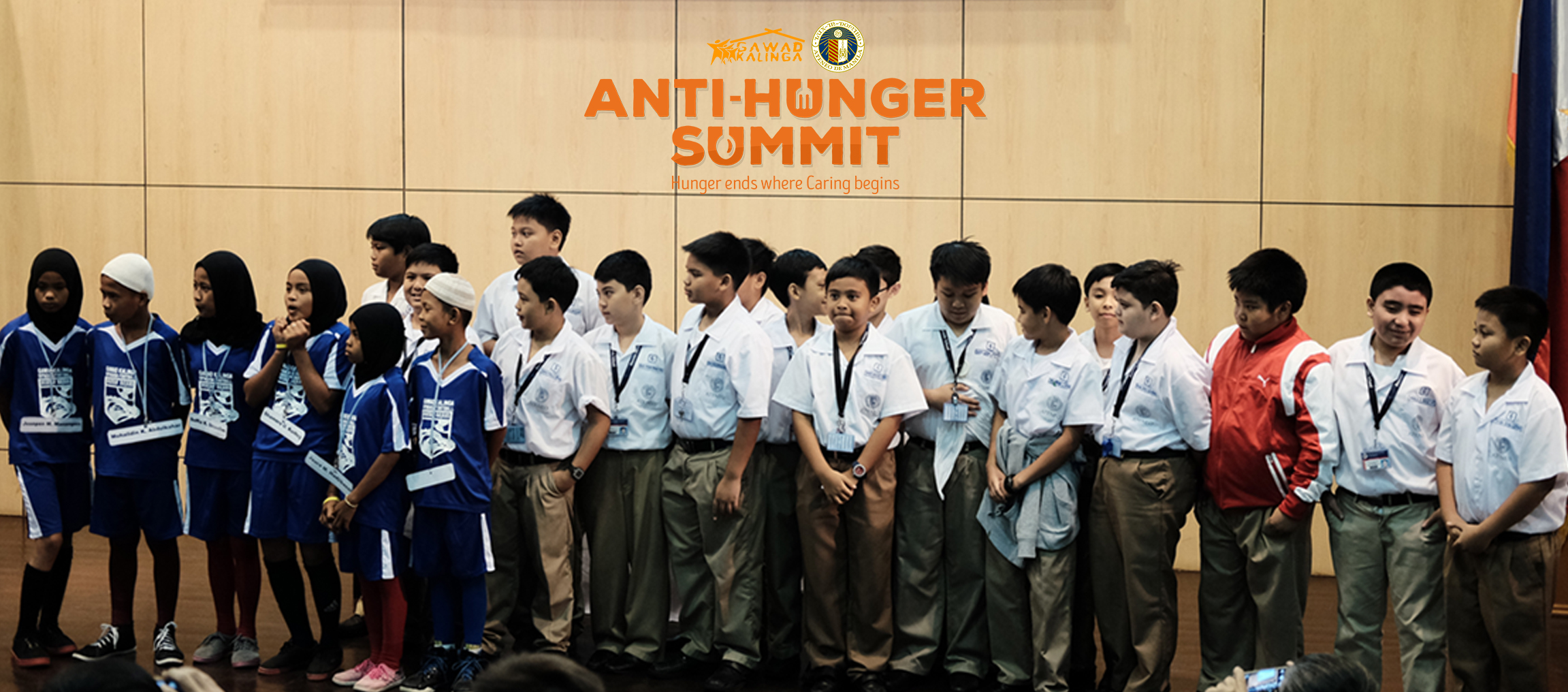
Anti-Hunger Summit: Invest in community-based anti-hunger programs and universal feeding for children
A group of LGU leaders, educators, and student groups gathered for the first Anti-Hunger Summit organized by Gawad Kalinga (GK) and Ateneo de Manila University to call for increased public investment in sustainable anti-hunger programs. Among those who participated were Fr. Ben Nebres of Ateneo de Manila University, Senator Grace Poe, Senator Sherwin Gatchalian, and Governor Tyron Uy of Compostela Valley. Around 400 people attended, among them LGU heads and officials, DepEd officials, congressmen, student leaders, corporate partners, and parents of beneficiaries. The delegation from Maguindanao included children from partner communities.
Jose Luis Oquiñena, Executive Director of Gawad Kalinga, stressed that poverty cannot be solved without addressing hunger. “Hunger is the most urgent issue faced by poor Filipino families on a day-to-day basis,” he said. “Addressing hunger comes in two stages: immediate relief from hunger and introducing a sustained intervention so the hungry can overcome their own hunger. Most funding goes to short-term feeding programs. Very few invest in sustainable solutions. Those mostly affected are children, nursing mothers, and the elderly.”
Gawad Kalinga has piloted a program called “Kusina ng Kalinga” (Care Kitchen), in close partnership with LGUs, the Department of Education, and various private donors.
Kusina ng Kalinga addresses hunger among children in elementary schools and those out in the streets. The solution is simple: build kitchens run by volunteers to provide lunch for thousands of kids per day. The cost per child is PHP 3,300 for one school year or PHP 15 per child daily.
Over the last academic year, GK provided daily lunches for over 21,000 elementary school students. “We hope to scale this to 50,000 in 2017,” Oquiñena said. Initial data from the first year of implementation has already reflected a decline in student absenteeism and malnutrition in the participating schools. The next phase in the program will involve setting up community-based social enterprises to cater to the needs of Kusina ng Kalinga’s 12 kitchens across the Philippines, supplying food items such as rice, groceries, vegetables and livestock.